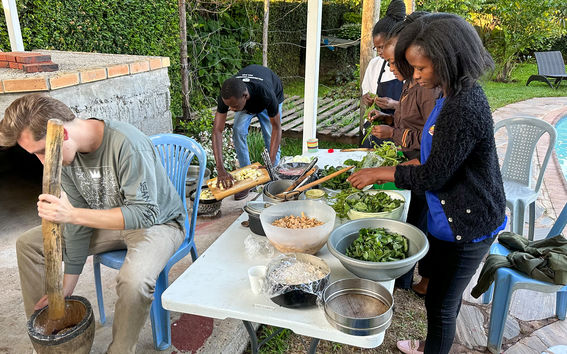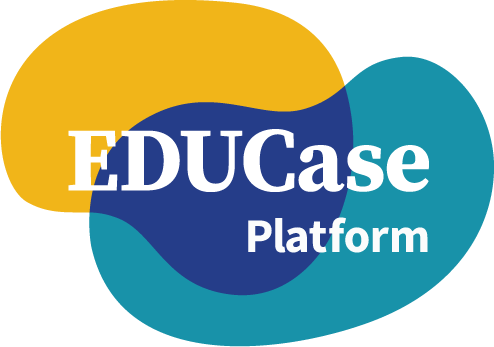Production of affordable and nutritious food in Zambia

As part of the AgriSCALE project, IDBM students , in collaboration with the local students from the University of Zambia(UNZA) and Mulungushi University, ventured into the heart of Zambia, uncovering unique challenges and opportunities. The project was set in motion by their partner, Trinity Super Nutrition, a Lusaka-based company with a mission to make affordable, nutritious food accessible to all through pre-cooked and dehydrated beans while combating deforestation, a root cause of severe environmental issues including erratic rain patterns.
The team consisted of 14 students with diverse backgrounds in technology, business, and design. The objective of the challenge was to gain an in-depth understanding of the local business environment and the agribusiness landscape in Zambia and co-design bottom-up approaches that corresponded to local opportunities. The students conducted the fieldwork in February 2023.
The methodological approach was based on Problem-Based Learning (PBL) through which the students were exposed to a variety of workshops, icebreaker games, and hands-on experiences. The focus of their research was Trinity Super Nutrition's precooked and dehydrated beans, a product that could significantly reduce cooking times for beans, a staple in Zambian diets, from 4-6 hours to less than 30 minutes. Despite language barriers, the team visited various marketplaces in Lusaka and Mumbwa to understand the local perspective on the product and agribusiness. The students remarked, "Having a 2-minute chat with somebody could change the whole course of the project”.
The team came together over a shared experience of learning to cook traditional Zambian dishes, including nshima, a thick maize porridge. One of the students recalled, "We offered a lot of unintended comedy when struggling to stir nshima, that was so heavy I cannot imagine how they do it daily. But also, it's so good”. The students also had the opportunity to participate in an event organized by Accelerated Growth for Micro, Small, and Medium-Sized Enterprises (AGS) in Zambia and the Finnish Embassy in Lusaka, which provided insights into local government policies and the potential for Finnish companies in Zambia's green and sustainable market.
The student challenge emphasized the importance of engaging with diverse and local stakeholders. Desk research can provide valuable insights, but assumptions are often challenged when immersed in an unfamiliar society, whilst bottom-up approaches to research unravel complex challenges.
Read more news
Breaking the Darkness: Tackling energy crisis in Lesotho
Lesotho, often called the Kingdom in the Sky due to its high altitude, faces a severe energy crisis, with nearly half of its population lacking access to reliable electricity.
Transforming Interdisciplinary Education: Sustainable Global Technologies (SGT) Across Four Continents
The true impact of our actions often unfolds over time, as demonstrated by the students at the SGT FAIR’24 on May 22. Their work showcased how a single student challenge can drive significant change.
A Global Learning Space: Empowering Students for Responsible Global Engagement
As part of the EDUCase network, the University of Oulu has offered to be the testing ground of a virtual learning initiative that aims to revolutionize virtual learning.
